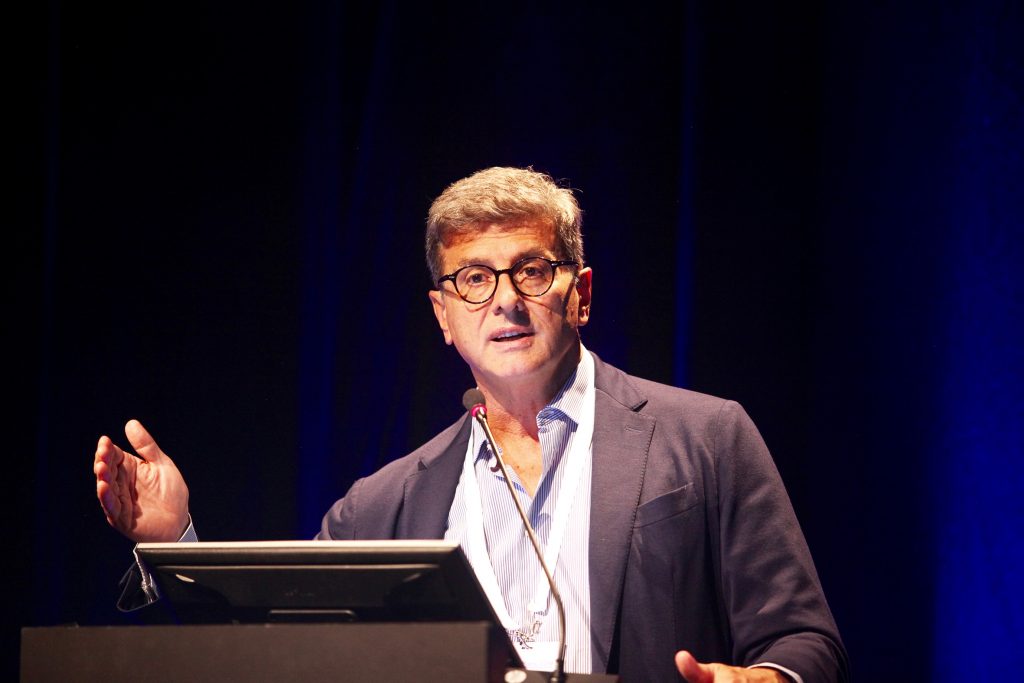Imaging remains a challenge in VKC
Difficult to get children to co-operate sufficiently to obtain good-quality imagery

Priscilla Lynch
Published: Sunday, September 15, 2019
 Paolo Nucci[/caption]
Imaging vernal keratoconjunctivitis (VKC) in paediatric patients remains a challenge, but recent imaging technology developments could make it easier to perform successfully, according to Paolo Nucci MD, Italy.
He told yesterday’s EuCornea session on ocular surface diseases in paediatric patients that imaging is very important in VKC cases given the high risk of corneal complications. However, it can be difficult to get children to co-operate sufficiently to obtain good-quality imagery across the range of modalities needed.
Dr Nucci presented data from a number of imaging in VKC studies, one of which showed that in vivo confocal microscopy appears to be a valuable tool in evaluating the dynamic change of dendric cells (DCs) at the conjunctiva and cornea. DCs play an essential role in VKC and therefore may constitute a target for therapeutic intervention for VKC.
He noted that low-light level imaging modalities may be more easily tolerated by photophobic patients. A recent non-invasive technology is a mobile pen-shaped meibography system with an infrared light-emitting diode as the light source, which allows quick, straightforward imaging.
Concluding, Dr Nucci said that successful imaging of paediatric VKC patients requires a positive attitude, constant encouragement and innovative use of the available technology by imaging personnel.
Paolo Nucci[/caption]
Imaging vernal keratoconjunctivitis (VKC) in paediatric patients remains a challenge, but recent imaging technology developments could make it easier to perform successfully, according to Paolo Nucci MD, Italy.
He told yesterday’s EuCornea session on ocular surface diseases in paediatric patients that imaging is very important in VKC cases given the high risk of corneal complications. However, it can be difficult to get children to co-operate sufficiently to obtain good-quality imagery across the range of modalities needed.
Dr Nucci presented data from a number of imaging in VKC studies, one of which showed that in vivo confocal microscopy appears to be a valuable tool in evaluating the dynamic change of dendric cells (DCs) at the conjunctiva and cornea. DCs play an essential role in VKC and therefore may constitute a target for therapeutic intervention for VKC.
He noted that low-light level imaging modalities may be more easily tolerated by photophobic patients. A recent non-invasive technology is a mobile pen-shaped meibography system with an infrared light-emitting diode as the light source, which allows quick, straightforward imaging.
Concluding, Dr Nucci said that successful imaging of paediatric VKC patients requires a positive attitude, constant encouragement and innovative use of the available technology by imaging personnel.